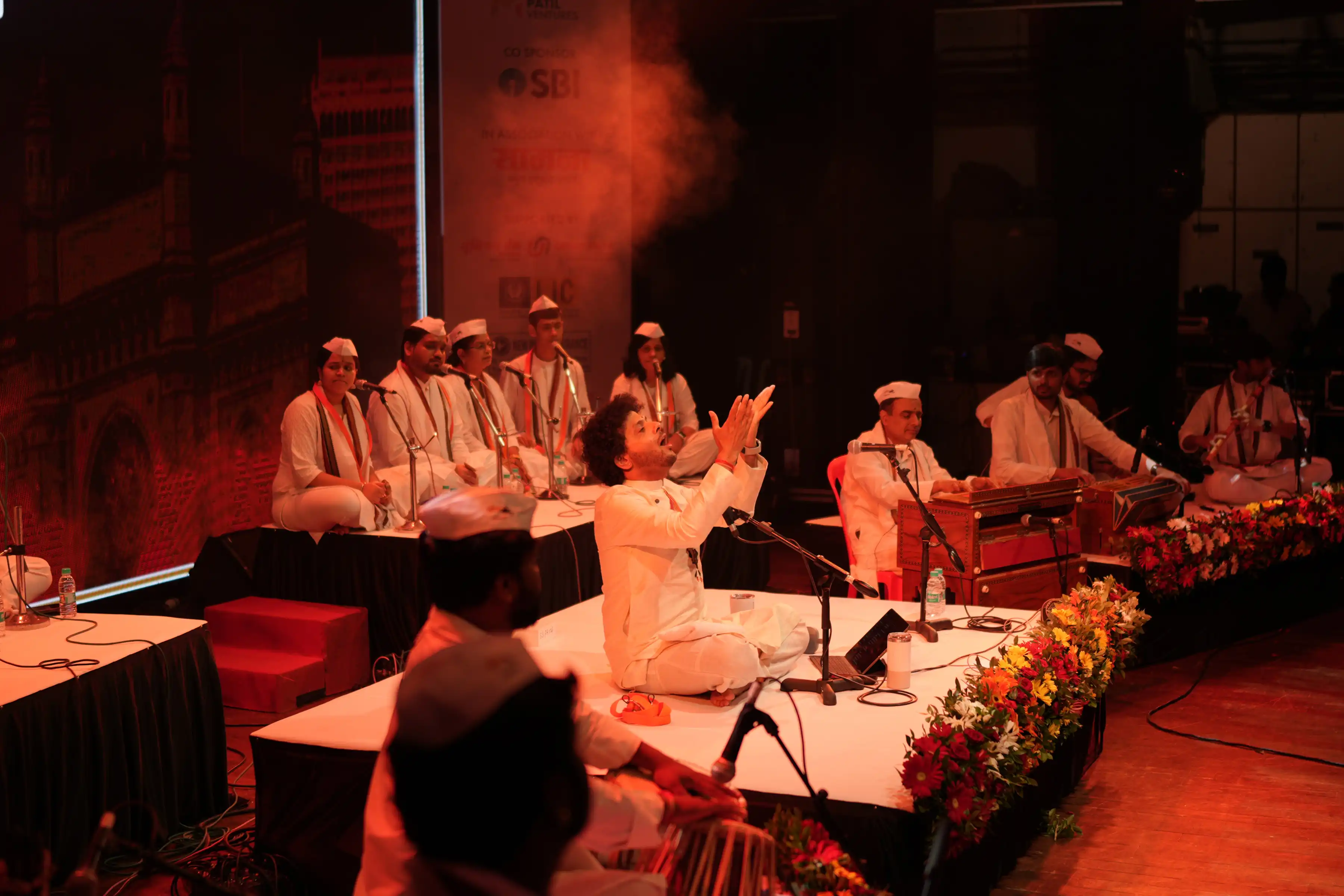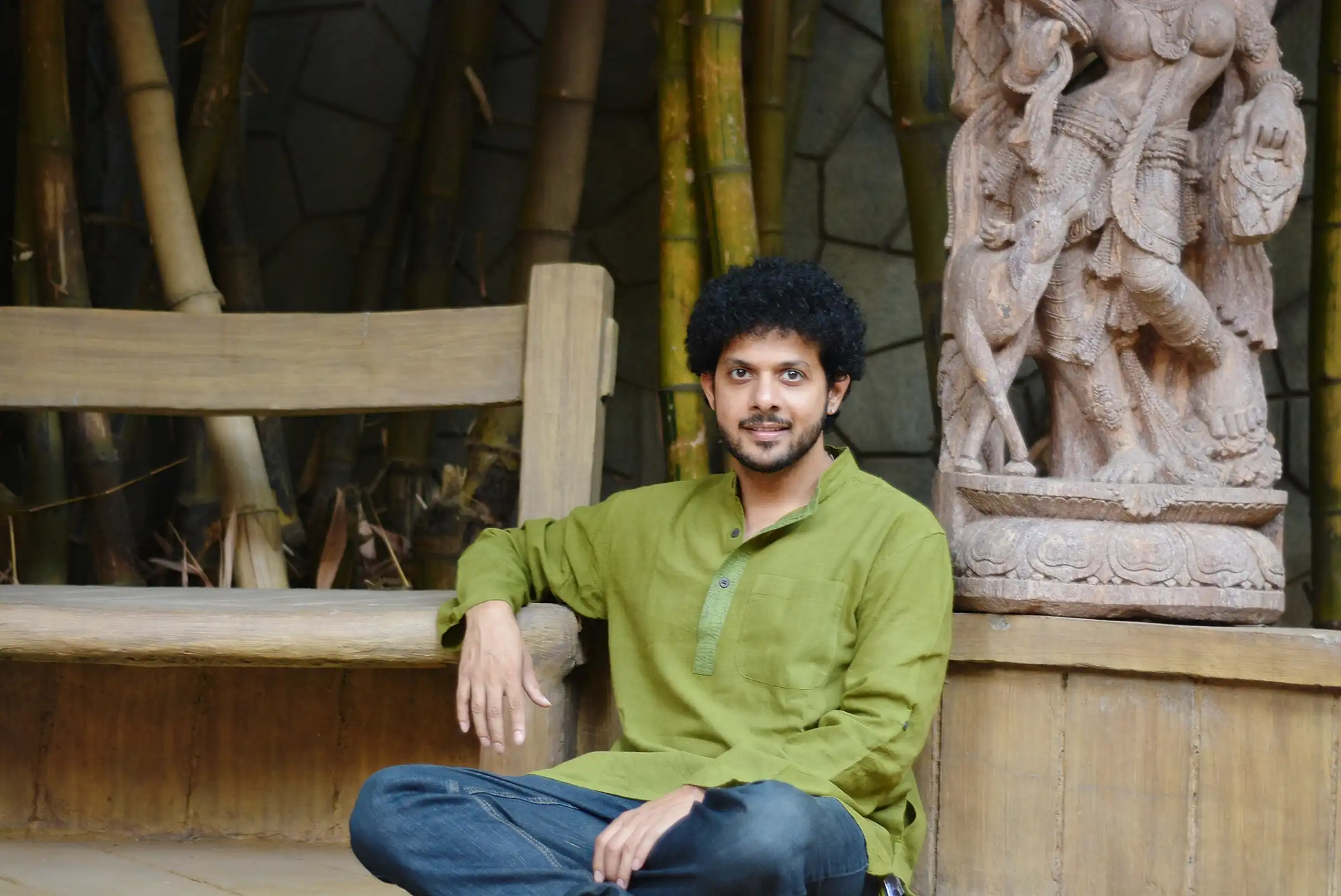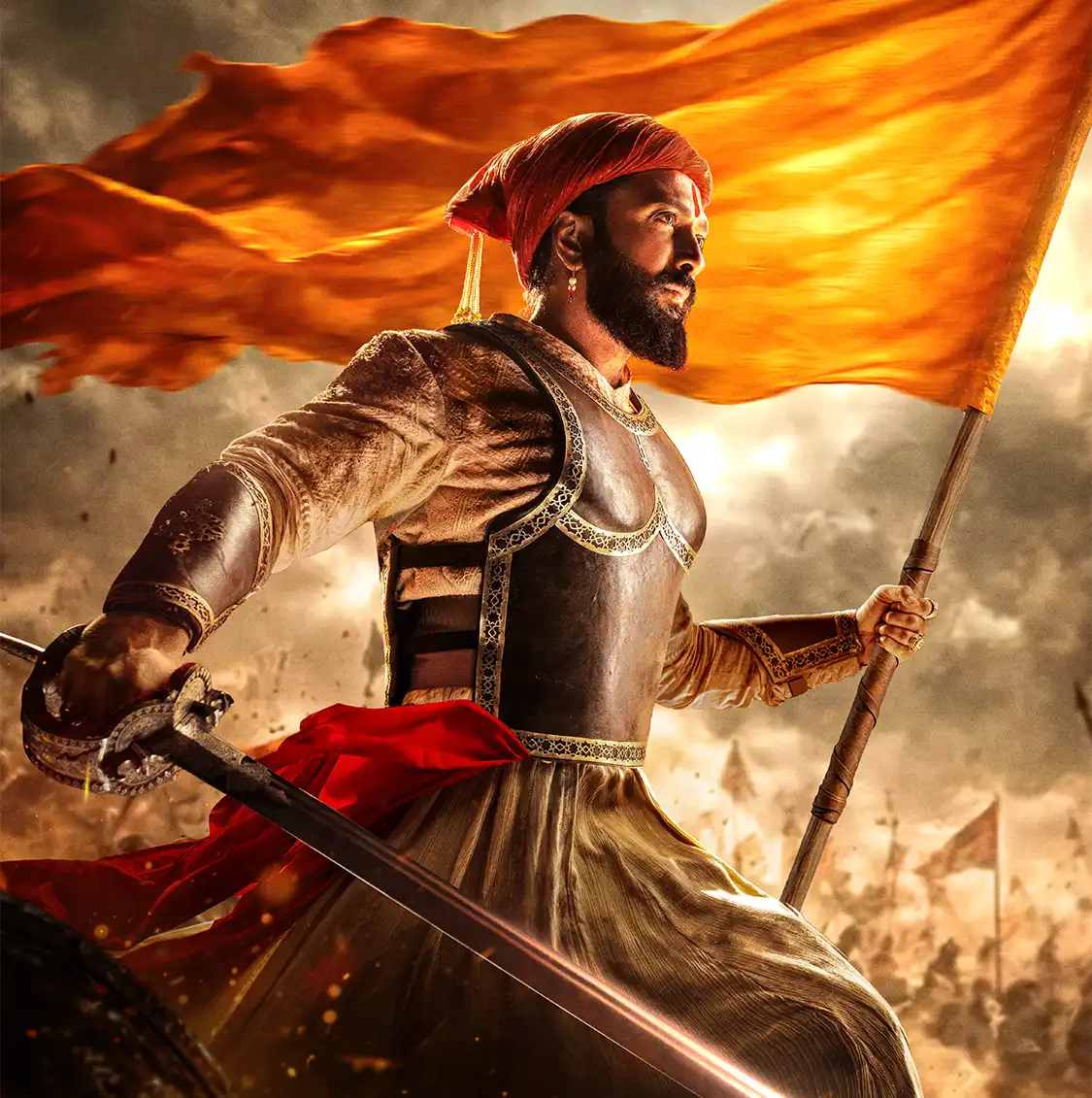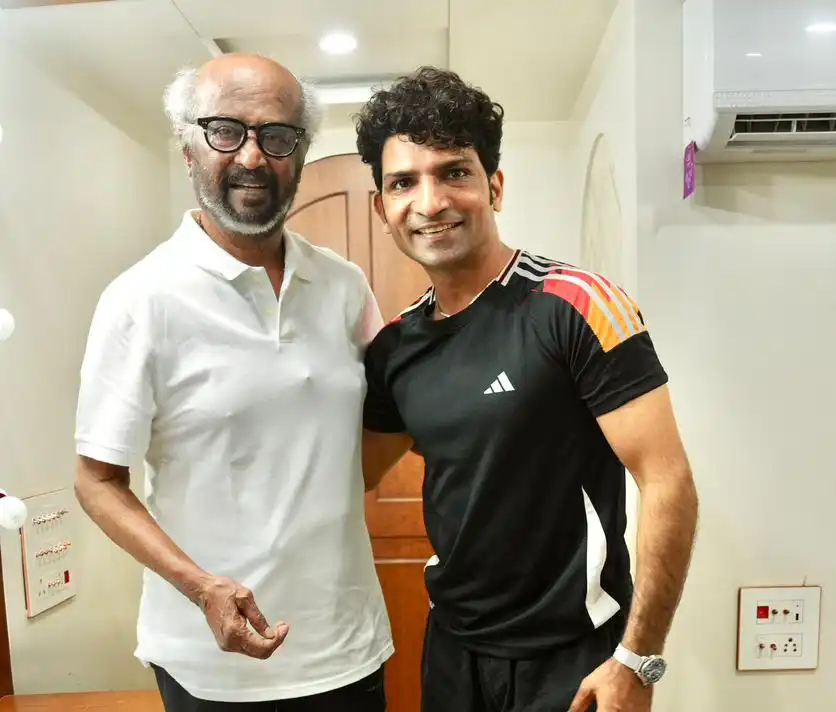With his mellifluous voice and deep-rooted devotion to Indian classical and devotional music, Mahesh Kale has captured hearts across continents. The National Award-winning vocalist is currently on an expansive international tour titled Abhangwari, celebrating the rich tradition of abhangs dedicated to Lord Vitthal. In this candid conversation, Kale reflects on the tour, the global response to devotional music, and the timeless power of Indian classical forms.
You’re currently touring with Abhangwari. How does performing in different parts of the world influence your presentation of Indian classical music? What excites you the most about this tour?
I feel in many ways, even if music is local and has a certain cultural construct, it has a way to appeal to a universal sentiment. If you really think of different breeds of animals, the way we see videos on YouTube, where a deer is asking for help from humans and it gets help, if a dog barks a certain way, depending on the tone, you are able to find the correct sentiment—so music in general, if it is seeded properly, is able to find its meaning through the heart. What I try to do in different places, for example, Europe is to experience the place culturally, go to the market, take the public transport, and when you observe, certain kinds of traits start surfacing. If you use those traits and conduct the concert hinting at them, it usually helps. For example, when I was in Switzerland and I was talking about how the exploration of raga happens, I ended up giving the example of the Alps. There is a beautiful mountaintop café, and I remember having a cup of coffee. I noticed something—there was not much change in the clouds, but the sheer expanse and the richness of nature were what was most appealing about that place. I compared that to a raga. With that, the Swiss people were primed to receive the raga well. So these are a few things I do. Of course, the language, the jargon, the lingo tied in to give a local flavour also helps.
I feel in many ways, even if music is local and has a certain cultural construct, it has a way to appeal to a universal sentiment
This year’s tour is centered around Abhangwari. How have international audiences, especially non-Maharashtrian and non-Indian listeners, been responding to abhangs and devotional music?
The experience of the Abhangwari tour has been nothing short of gratifying and humbling. I’m saying this because I’ve obviously seen Marathi people at my concerts, but there was all of India as well—North Indians, Tamilians, Kannadigas—everyone showing up. They respond to the music with a very keen sense of approval. Not only that, there were Germans, Swiss, Cypriots, Swedes and it is amazing to see how music binds everyone together. It’s like food. I was told Indian food is quite popular over there because we handle the spices very well for the most part, and they relish Indian food. I feel the same about Abhangwari. The narration that ends up happening in English as the common communication language orients them, and once that happens, they find their spot, which helps them connect with the music.
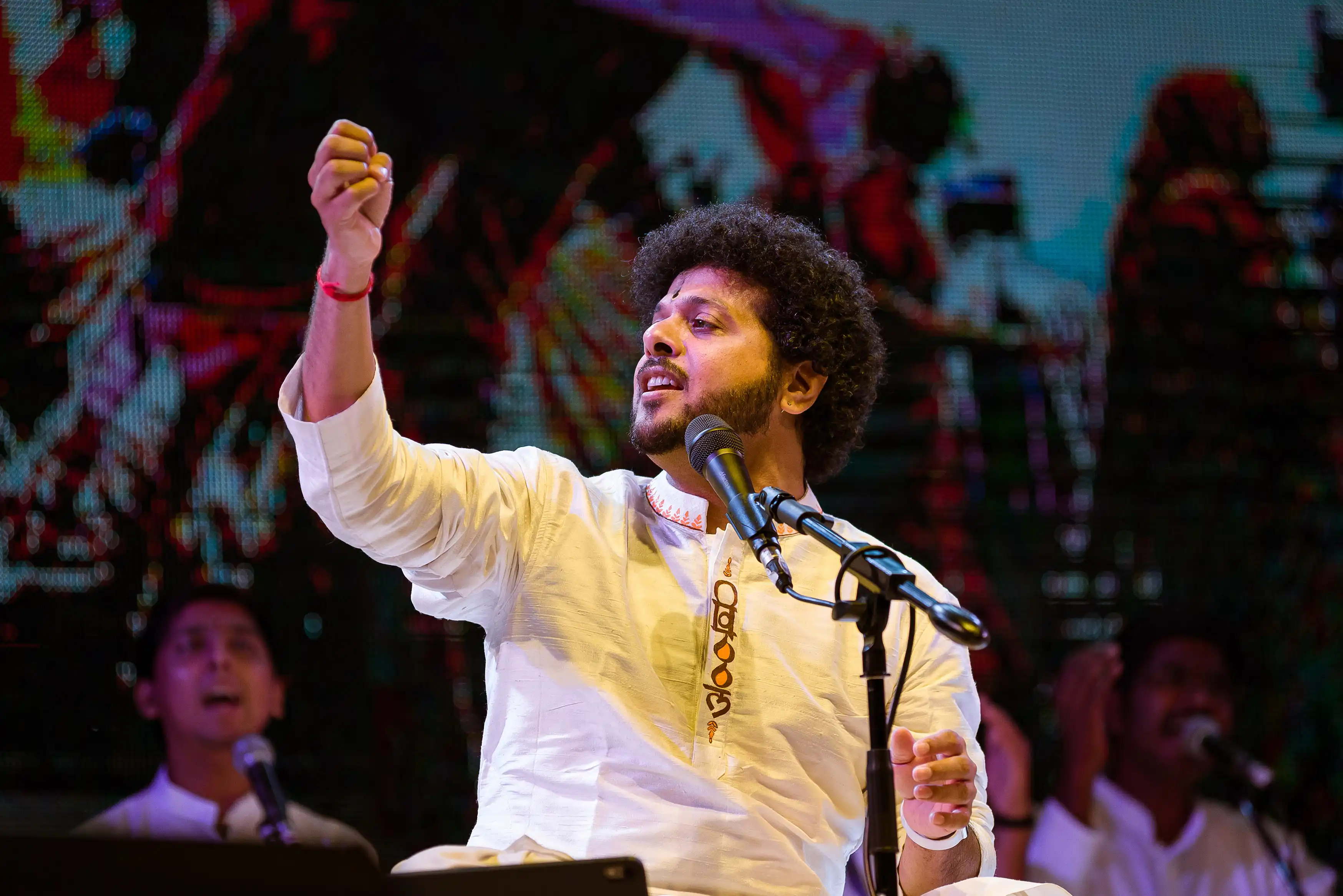
What challenges or surprises have you faced while performing deeply rooted Indian classical or devotional compositions in different countries?
The obvious challenge one could think of is the language, because if I’m singing Khayal music, that’s mostly Braj; Abhangwari is mostly Marathi, sometimes Hindi or Urdu. But most of these languages are not known to the local population. I ensure that I explain the gist of the poem, the sentiment of it, and I’ve seen the folks receiving it well and zoning into it. I made them sing with me, and very gladly, most of them agreed and sang with me. In fact, I have been conducting workshops, and one particular workshop that I conducted in Frankfurt comes to mind. There were about 60–70 folks over there, out of which 7–8 were Marathi. I explained to them the meaning and the nucleus of the song, and what fascinated me the most is that in 90 minutes, not only did everyone memorize the song, the tune, and the meter, but they were also attached to the song. They were smiling, some had tears, some were swaying, and it was very beautiful to watch.
In a typical Abhangwari concert on this tour, what does your setlist look like? Do you include explanations or storytelling to help audiences connect?
I’ve been doing the Abhangwari concert for the last 10 years, and every year it tends to evolve because mainly I tend to compose new songs that become a part of the setlist.
Of course, there are a few popular songs that people want to listen to, and I sing to them. We weave the songs in a story form, where the story depicts the pilgrimage that starts from various different places and leads to different places, what the pilgrims face, what are the experiences that they share, finally culminating. The script has been written by Prajakt Deshmukh, who himself has experienced this pilgrimage a bunch of times, and they are based on true stories that happen in Wari. Yes, in certain places we have had English subtitles that run along with the song so that people understand the meaning of the song. I sometimes tend to simplify and explain the gist of the songs, and I have seen that all of these things that we end up doing draw the audience.
Do you find that international audiences engage differently with classical vs. devotional pieces?
I do not think the international audience engages in a different way. It’ll be hard to tell how they engage, but I can tell how they respond. They tend to respond in a similar fashion to classical music. Sometimes, in fact, they are deeper into it because there’s a deeper enquiry and search, and hence they end up indulging more intensely. Whether you are in Italy, or Ethiopia, or the US, or India, you smile when you feel joy, you cry when you feel pain. So as long as the baseline emotions are the same, our responses would be similar.
Share a memorable moment from this current tour that made you pause and reflect on your musical journey?
There are several moments that make you humble. This particular one I’m able to recollect: I got a message from a person who attended my concert in Stockholm. He told me when I was singing Abhir Gulal, his little kid was dancing to it, and he told me he felt happy because it was his mother’s favourite song as well, who sadly passed away due to cancer last year. He wanted his son to witness the song that his mother loved the most. Seeing him dance to my song made him believe that his wife was smiling wherever she was. So these are the sentiments.
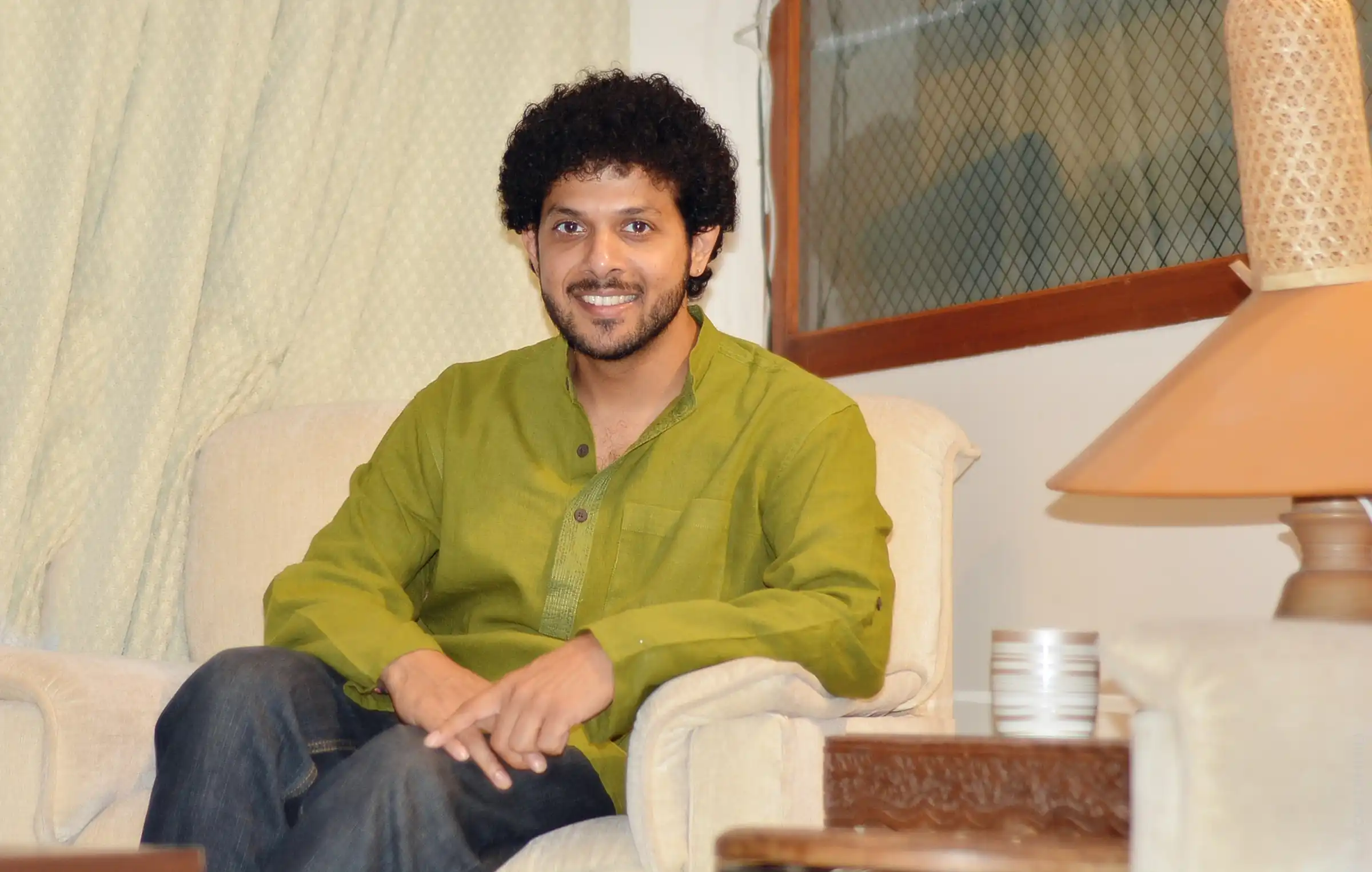
With such a tight travel schedule, how do you maintain your vocal discipline and energy from one city to the next?
The schedule becomes quite challenging. Well, there are some exercises, I love to walk, explore the city, fresh air helps. While the schedule is tight and it weighs on your health, the idea that you are spreading so much joy brings you joy and energy. No matter where you are travelling, I’m travelling from a place of joy to another place of joy, and that ends up rejuvenating me. Right now, I must have done a bunch of concerts already, but when I enter the stage, I enter with the same amount of joy and energy.
Do you notice a shift in audience demographics abroad? Are you seeing more young listeners attending your concerts outside India?
It is a delight to see the younger audience come. Recently, a dad came with two of his daughters, and they told me that Katyar Kaljat Ghusli was their first movie that really drew them to Indian classical music, and they have been listening to the songs in times of distress, when they have a lot of homework to deliver. Then I just asked them what they like about the music, and they said it’s wonderful to be attached to the roots and have a common topic of conversation with their relatives back home in India. It’s a beautiful way to bond with your grandparents. So music is a very potent tool that bridges the generation gap, and I have been increasingly getting more of a population of youngsters, and it’s heartening.
In a world increasingly moving toward short-form content, how do you see the future of long-format classical performances?
Yes, the attention span of the audience is decreasing, but in love, you make time irrespective of how busy your life is. I think if you are able to make someone fall in love with music, then long form is not something that will deter them from listening. Yes, I know the attention span is less, but people are not listening to only one song, they are listening to a lot of songs. If there’s a way to bring in variety, introduce different tangents where they feel they are switching in the anticipation of the music, then I think long form will work. In the end, everyone wants a sumptuous home-cooked meal. After as many snacks or gourmet meals as you have, anywhere in the world, you gravitate towards home food. I think Indian classical music is that comfort food.
Stay with what is ours. Of course, gather the wisdom and all the good things that there are, but don’t lose what we already have, what we already are
One lesson or value for the next generation of musicians?
We have a very rich culture and heritage. It cannot be bought; it has to be preserved. And the only way to preserve it is if the next generation picks it up. So my request to the next generation is that just like you try to preserve your grandpa’s gift, this is a gift that we have got, and it is our duty. The other thing is, our culture is what gives us our core identity. Stay with what is ours. Of course, gather the wisdom and all the good things that there are, but don’t lose what we already have, what we already are.
